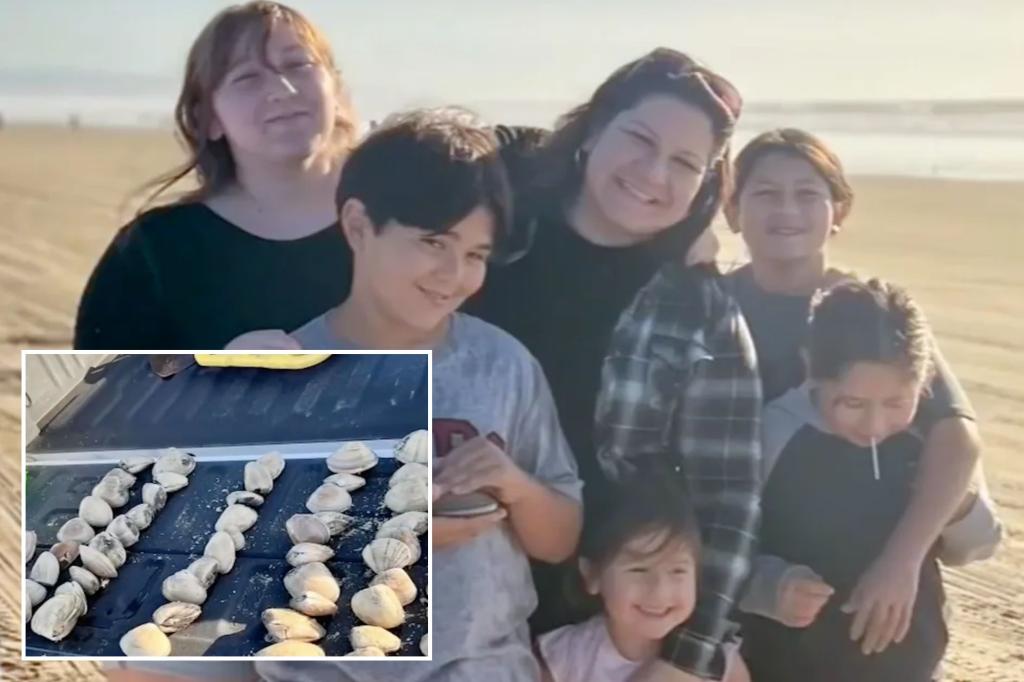A California mother was shocked to receive an $88,000 fine after her kids mistakenly collected clams without a fishing license while vacationing at Pismo Beach. The mother, Charlotte Russ, explained that her children thought they were picking up seashells, not realizing they needed a license to collect clams. The Department of Fish and Wildlife issued a ticket to Russ for the unauthorized clamming, causing her distress during what was supposed to be a family getaway.
Russ later received a notice in the mail demanding payment of $88,993, but a judge reduced the fine to $500. The incident left Russ feeling sad and depressed, as it had cast a shadow over her trip. She expressed that the situation ended up being a learning experience for both her and her children, teaching them valuable lessons about wildlife regulations. Russ humorously commemorated the mix-up by getting a shellfish tattoo, turning the expensive mishap into a memorable story to share with others.
In 2023, there were fifty-eight citations issued in San Luis Obispo County for illegal clam collection. The Department of Fish and Wildlife enforces strict penalties for collecting clams without a license in order to protect shellfish species like the Pismo clam. Lt. Matthew Gil explained that regulations are in place to allow clams to grow to a certain size to ensure successful spawning and the continuation of their population. Pismo clams are unique to the eastern Pacific Ocean and have specific characteristics such as thick shells and a distinct color pattern.
Pismo Beach is known for its Pismo Clams and Pacific Razor Clams, with regulations in place to limit clamers to ten Pismo Clams per day. The population of clams has faced threats in the past due to clamming activities and interactions with sea otters, but conservation efforts have helped increase shellfish populations. The incident involving Charlotte Russ and her children highlights the importance of following wildlife regulations to protect vulnerable species and ensure their continued existence in their natural habitats.
The Department of Fish and Wildlife’s emphasis on conservation and protection of shellfish species is reflected in the enforcement of fishing and clamming regulations. The regulations are put in place to allow shellfish to reproduce and sustain their populations, promoting the overall health of the ecosystem. By limiting clam collection without a license, authorities aim to prevent overexploitation and maintain a balance in the marine environment. Educating the public about wildlife regulations and the importance of following them helps create awareness and understanding of the need to protect vulnerable species like clams.
The story of Charlotte Russ and her children’s clamming escapade serves as a cautionary tale about the consequences of not abiding by fishing and clamming regulations. Despite the initial shock and emotional toll of receiving a hefty fine, Russ and her family were able to find humor and valuable lessons in the experience. The incident underscores the significance of responsible environmental stewardship and the collective efforts needed to preserve marine ecosystems for future generations. By respecting wildlife regulations and understanding the impact of human activities on the environment, individuals can play a part in safeguarding vulnerable species like the Pismo clam and contributing to the sustainability of marine ecosystems.


